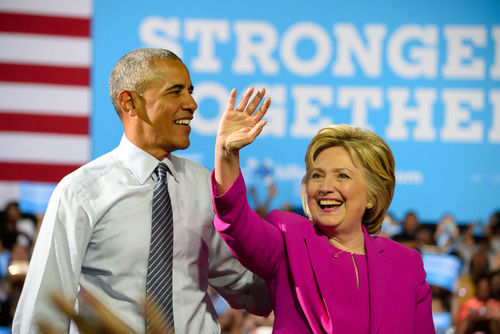Why has the FBI sat on potentially explosive Clinton email evidence for six years without review?
FBI’s Handling of Clinton Email Investigation Questioned
Senate Judiciary Committee Chairman Chuck Grassley and House Permanent Select Committee on Intelligence Chairman Rick Crawford are demanding answers from the FBI. They’ve accused the agency of neglecting to review critical evidence from the Clinton email investigation. These thumb drives, allegedly stored since 2018, might contain sensitive emails involving former President Obama and network infrastructure diagrams. Given what’s at stake, the FBI’s lack of action is mind-boggling.
FBI failed to probe key thumb drives in Clinton email probe:
DOJ watchdog files. WASHINGTON – The FBI barely glanced at potentially crucial evidence in its investigation of Hillary Clinton's use of a private email server while secretary of state, according to a portion of a… pic.twitter.com/Q1ogx1Phl8— ✨Rojas✨ (@mcucolo57) July 23, 2025
Grassley and Crawford’s letter to FBI Director Kash Patel is a bold call to action. They’re pushing for a review of the thumb drives and referencing the declassified “Clinton annex” from a 2018 report. This annex, containing intelligence that Republicans say was ignored, has reignited demands for transparency and accountability. It’s a harsh reminder of the inconsistencies in how the FBI handled this high-profile case.
Implications of Unreviewed Evidence
The existence of unreviewed evidence raises serious questions about the FBI’s impartiality. For over six years, these thumb drives have collected dust, potentially holding key information that could shed light on the Clinton email scandal. Grassley and Crawford’s demand for action highlights a significant lapse in oversight and enforcement from the nation’s top law enforcement agency.
The potential contents of these drives are alarming. They reportedly include communications between Clinton and Obama and diagrams of classified U.S. systems. If true, the implications for national security and the integrity of governmental processes are enormous. The FBI’s failure to address this evidence not only damages its credibility but also erodes public trust in federal institutions.
Political Ramifications and Public Reaction
The renewed focus on the Clinton email investigation has reignited political tensions. As conservative lawmakers demand accountability, questions about the FBI’s competence and transparency are front and center. The public is left wondering if political biases have influenced the agency’s decisions, a concern that has plagued the FBI for years.
NEW EMAIL PROBE INVESTIGATION OPENS UP RELATED TO HILLARY CLINTON
Attorney General Pam Bondi grants Hillary Clinton email probe request putting yet another official in the hot seat along with Obama and the rest of his traitorous thugs.
DOJ honored Chairman Grassley's request to… pic.twitter.com/DcMDQBPHUM
— The SCIF (@TheIntelSCIF) July 21, 2025
This situation also underscores the ongoing partisan struggle over law enforcement practices. With the 2025 elections on the horizon, the political stakes are high. Republicans see this as an opportunity to highlight perceived biases and failures within the FBI, while Democrats may view it as a politically motivated attack. The outcome could significantly influence voter sentiments and shape the political landscape.
What’s Next for the FBI?
As of now, the FBI has yet to respond to Grassley and Crawford’s demands. With the spotlight on Director Kash Patel, the agency’s next steps are crucial. Will the FBI finally review the unexamined evidence and address the concerns raised by lawmakers? Or will it continue to sidestep accountability, further damaging its reputation?
The potential consequences of inaction are severe. Failure to address these issues could lead to further erosion of public trust and intensified calls for reform. As the story unfolds, Americans will be watching closely, eager for transparency and accountability from their institutions.

